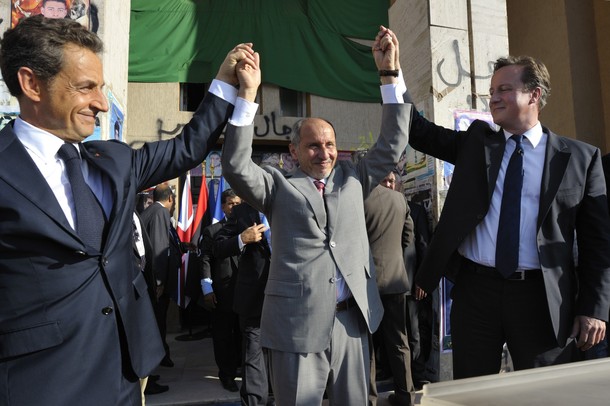
From Brian Knowlton, the New York Times: In Libya, NATO crossed the historical milestone of letting Europeans, basically the British and French, conduct a war in which the U.S. military played a vital but secondary role, and European politicians and generals rejoiced at word that Col.Muammar el-Qaddafi had been killed in or near his stronghold of Surt. . . .
In London, Prime Minister David Cameron stepped outside his Downing Street residence to pay tribute to British victims of Libyan terrorism, from those who died in the 1988 bombing of a Pan Am flight over Lockerbie, Scotland, to a London policewoman, Yvonne Fletcher, who was shot to death in 1984 outside the Libyan People’s Bureau, as the embassy was called, to the victims of Libyan plastic explosives in Northern Ireland.
“We should also remember the many, many Libyans who died at the hands of this brutal dictator and his regime,” Mr. Cameron said. He added, “I am proud of the role that Britain has played in helping them to bring that about.”
The French president, Nicolas Sarkozy, who had pressed vigorously for alliance action, said Thursday that Colonel Qaddafi’s death marked “a major step” toward Libyan liberation, opening a new page for the country’s people — “that of reconciliation in unity and liberty. . . .”
Anthony Cordesman, a military specialist at the Center for Strategic and International Studies, in Washington, said there were clear lessons from the way NATO wielded its air power in Libya: “France and Britain are still by world standards very meaningful powers, their political influence is certainly more important than the sheer size of their forces — but both are important.
“It is also true that the United States does not have to be out in front every time, it can let the allies take the lead.”
Meanwhile, President Barack Obama said: “Without putting a single U.S. service member on the ground, we achieved our objectives, and our NATO mission will soon come to an end.” (photo: Getty)
Image: getty%2010%2021%2011%20Sarkozy%20Jalil%20Cameron.jpg
